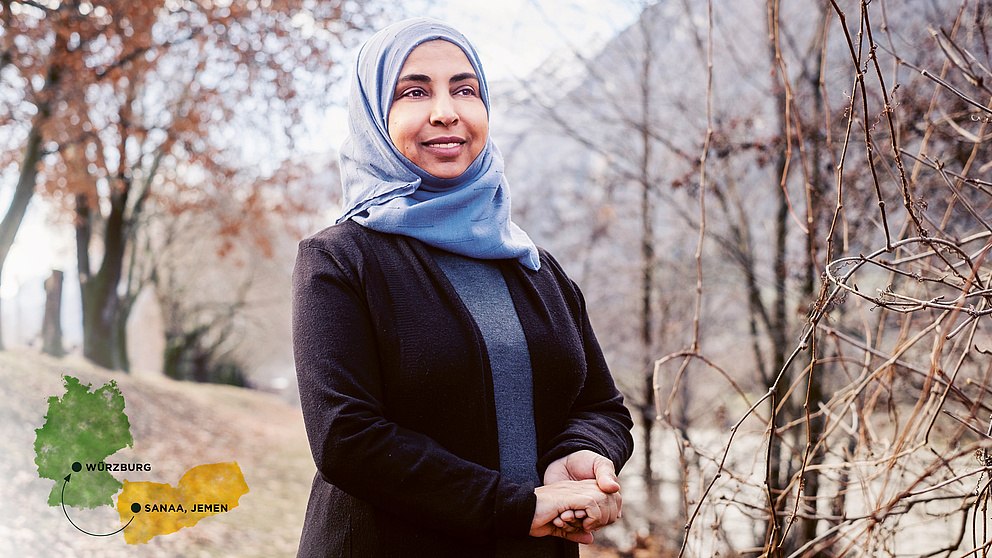Jump to the content
- {{#headlines}}
- {{title}} {{/headlines}}

Philipp Schwartz Initiative
Their home countries are blighted by war, their freedom of research is curtailed or they are persecuted: in many parts of the world, scientists and scholars are in danger. The Philipp Schwartz Initiative helps researchers who have fled their countries to find their feet at German universities and research institutions.
My father is a farmer and when I was a child, he often showed me which plants would help if you had a headache, stomach pains or back problems. How does he know that, how do the people in Yemen know that? This question occupied my mind to such an extent that I became a food chemist and conducted research on the healing power of herbs at the University of Sanaa. After the protests of the Arab Spring in 2011, the situation in my home country became increasingly difficult for researchers. In 2015, war broke out on several fronts. Everyone was everyone’s enemy. I was harassed; I was supposed to teach more students in the lab than was possible. Sometimes, water and electricity at my workplace were turned off. And for two years, moreover, I wasn’t paid any salary. And then I experienced how scientists in my faculty disappeared. I was very scared about what could happen to me. I feared for my life.
Sometimes, water and electricity at my workplace were turned off. And for two years, moreover, I wasn’t paid any salary.
In 2016, I attended an award ceremony in Washington D.C. which was covered intensively by the media. I used this attention and said in an interview that I was looking for someone to help me find a position abroad. As a result, I was in contact with Prof. Klaus Krickeberg, a professor from Germany who put me in touch with Leane Lehmann, professor of food chemistry at Justus-Maximilians-Universität Würzburg. Together we applied for a fellowship under the Philipp Schwartz Initiative. It was a gift, God’s blessing on me! It was not easy to get out of Yemen. Eventually my husband and I managed to leave via Sudan where we had to wait four months for a visa to Germany. When we finally arrived in Würzburg in December 2017 – it was snowing at the time – I was greatly relieved.

Dr Ghanya Al-Naqeb
Country of origin:
Yemen
Scientific field:
Nutritional Science
Host institution:
Universität Würzburg
Sponsorship Philipp Schwartz-Initiative:
12/2017 – 11/2019
I attended a German course and concurrently continued working at the university laboratory on the plants I had brought with me from Yemen, including Pulicaria jaubertii E. Gamal-Eldin and prickly pear seeds. The language barrier and working in such a sophisticated lab were, of course, a challenge. But at the same time, I was welcomed into the team and am very grateful for the opportunity to continue my research in Germany. Now I am about to publish two articles which are important for my academic career.
Originally, I wanted to return to Yemen when the fellowship came to an end but due to the continuing civil war, this is impossible. Not least thanks to the contacts I made during the Philipp Schwartz fellowship my application to the University of Trento was a success. That’s why I’m in Northern Italy now. Last year, Leane Lehmann invited me to participate in a DAAD alumni forum, which, however, was postponed to 2021 due to the Coronavirus pandemic. I am looking forward to visiting Würzburg and Germany for this event.
Reported by Carola Hoffmeister

